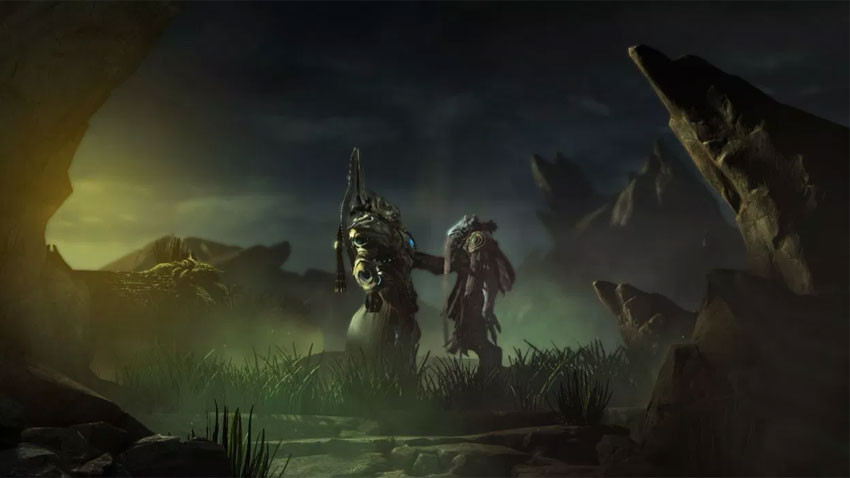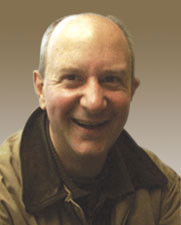
“We have been watching movies for a hundred years and we are so used to cinema, but at the beginning, people fled the theatres when they saw a train rolling up on screen. Now, with the new technologies it is the same thing, the sensation is just as powerful,” says Zlatin Radev, one of the most successful animated film directors and producers.
Visual art experts, and anyone who has ever come in contact with virtual reality, (VR) say that it is the acme of perfection in movie and animation experience. The image may be computer-generated, or captured on camera, or animated using new animation technologies. Depending on its application, there is computer animation or what is known as computer games and cinematic VR.
 “Cinematic VR tells a story,” Zlatin Radev explains. “It may be interactive or not, but it places viewers inside a 360º environment, and the feeling is beyond words. I myself find it incredibly interesting, like my first steps in animation, when I saw my drawings coming to life for the first time. It is the same here, you enter a new world. There are different kinds of software you can draw with, literally like you do with a brush, only spatially, with special goggles. When you draw this way you are inside the drawing, and you draw in the space surrounding you, viewers can also enter and watch.”
“Cinematic VR tells a story,” Zlatin Radev explains. “It may be interactive or not, but it places viewers inside a 360º environment, and the feeling is beyond words. I myself find it incredibly interesting, like my first steps in animation, when I saw my drawings coming to life for the first time. It is the same here, you enter a new world. There are different kinds of software you can draw with, literally like you do with a brush, only spatially, with special goggles. When you draw this way you are inside the drawing, and you draw in the space surrounding you, viewers can also enter and watch.”
Virtual technologies also affect the storyline. There is no long-shot, medium shot or close-up – “it is all one huge 360º shot in which everything is there to be seen,” Zlatin Radev says and adds:
“It is so strange to be telling such a story, having viewers look in the direction we want them to, because they can be looking anywhere they like. We may have some action taking place somewhere, but they may have their backs turned, or be looking upwards or downwards, and that creates a host of other problems which you cannot ever imagine could exist. That is why you have to draw their attention with sound, light, or action.”
The audio in these films is spatial, and the sound is generated so that the viewer may turn to see where it comes from, just like in real life.
“It is really interesting, offering a myriad of possibilities, but also creating many problems – technical but also purely artistic.” And that is precisely what attracted Zlatin Radev. “When I watched VR for the first time I suddenly asked myself where my feet were. I looked down and saw a world of some kind, and I was not in it. Very strange feeling.”
That is the reason why the camera should not move around too much, because the brain can be fooled very easily. It perceives reality as it really is there and even though the vestibular system is not actually in motion, the first reaction is motion sickness.
Virtual technologies are all-pervasive, and in the summer of 2018 they entered our smartphones.
“It is a very useful instrument, but we have to know how to use it,” Zlatin Radev says and adds: “Back in the day there were brushes and paints in animation, now there is this. Classical cinema will never disappear, though there will be new technologies. Their effect on us, humans, is very strong.”
Of course, as with any technology of this kind, there is always the risk of manipulation, but it all depends on how we use it. Is that the future?
“I myself am in two minds. In real life, when we are outdoors, we do not turn our heads 360º. In movies, as in real life, we take in the general picture first, then we come closer, and if we want to see a particular detail, we come closer still. Unless we follow this in filmmaking – long-shot, medium shot and close-up – viewers will feel awkward. VR shows everything all at the same time relying on viewers choosing what to look at, pushing them to turn their heads all the time. That is something I personally do not enjoy particularly. It is impressive, but up to a point. It resembles peripheral eye vision, but a person only needs 180º, not 360º every time. That is why I think things will gradually fall into place.”
English: Milena Daynova
Photos: libraryAt a special ceremony at the Romanian Embassy in Sofia, Ambassador Brândușa Ioana Predescu presented Bulgarian conductor Nayden Todorov with the Order of Cultural Merit with the rank of Grand Officer. "We are here to honor today your Maestro whom I..
Spanish writer Ana Andreu Baquero is coming to Bulgaria to present her novel "The Princess of Buchenwald" , the Cervantes Institute, which is organising the event with the Hermes publishing house, announced. The presentation of the book is scheduled..
On February 12, in the cosy space of the Bulgaria Gallery in the heart of Rome, compatriots and Italians will gather to commemorate a Bulgarian healer who with perseverance and dedication managed to change the lives of thousands of..

+359 2 9336 661
